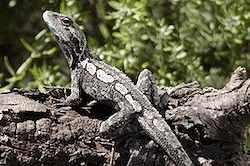Animal behaviour
Peters Lab
Lab leader
 Dr Richard Peters
Dr Richard Peters
Senior Lecturer, College of Science, Health and Engineering
 Animal Behaviour can be regarded as a bridge between physiology and ecology. Knowledge of behaviour provides an important link between organisms and the environment. For many, studying animal behaviour is rewarding as it satisfies our curiosity about the natural world. However, it is more than this. Knowledge of animal behaviour can allow us to better manage our stock animals and to identify the welfare requirements of all animals under our care. It is an important aspect of conservation efforts and provides a window for us to understand environments.
Animal Behaviour can be regarded as a bridge between physiology and ecology. Knowledge of behaviour provides an important link between organisms and the environment. For many, studying animal behaviour is rewarding as it satisfies our curiosity about the natural world. However, it is more than this. Knowledge of animal behaviour can allow us to better manage our stock animals and to identify the welfare requirements of all animals under our care. It is an important aspect of conservation efforts and provides a window for us to understand environments.
Research in the animal behaviour group considers animal behaviour in a diverse selection of animals. Common to many of our past and current research projects is the field of animal communication: from signals defined by movement in lizards to acoustic alarm signals in birds. Ongoing projects include:
- Describing the movement-based displays of agamid lizards in Australia
- Understanding the ecological factors that affect lizard display structure
- Developing 3D simulation tools for understanding animal behaviour
- Alarm communication in zebra finches
- Vibratory signalling in psyllids
Our group has active collaborations with Australian and international researchers. For more information visit the Peters Lab [external site].